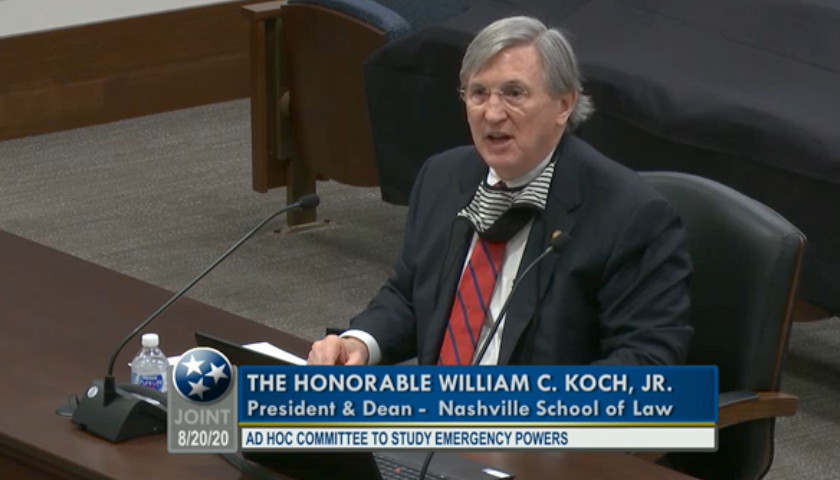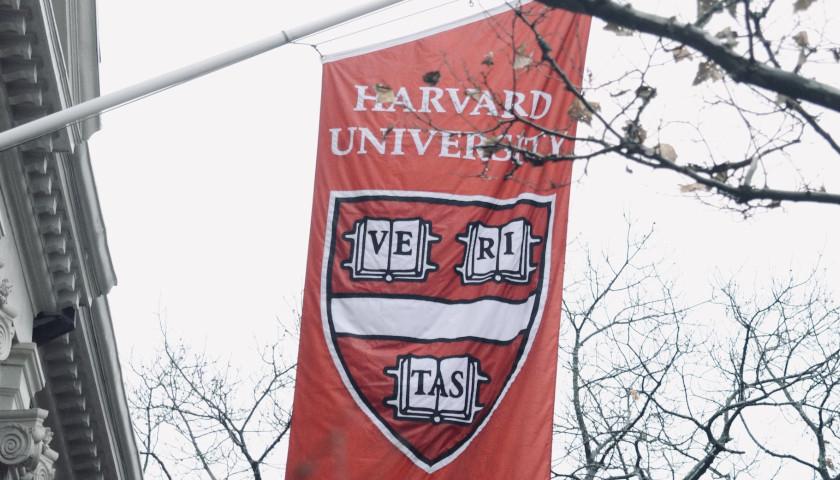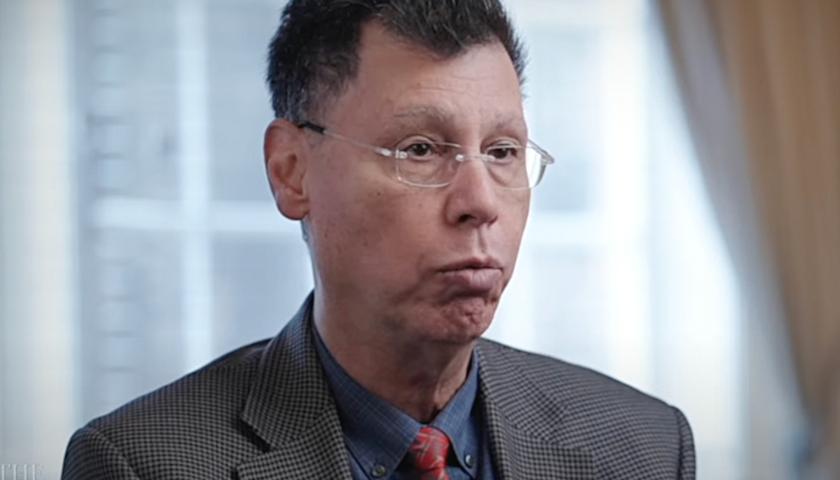In testimony to the Joint Ad Hoc Committee to Study Emergency Powers Thursday, retired Tennessee Supreme Court Justice and president and dean of Nashville School of Law William C. Koch, Jr. said Governor Bill Lee’s executive orders are entirely consistent with the inherent power in his office and granted to him in state statute.
The 17-member ad hoc committee, consisting of five senators and 12 representatives, was established by the respective speakers of each house at the request of members in light of the emergency status caused by COVID-19.
The meeting started with opening remarks from Co-Chairs Rep. Jason Zachary (R-Knoxville) and Sen. Ferrell Haile (R-Gallatin). Both talked about the extraordinary times and were complimentary of Lee’s actions, operating within the framework of what was established by the legislature 20 years ago.
They both recognized the concerns of citizens relative to the infringement of rights and liberties.
Haile and Zachary also made it clear that the committee was not established to review the individual decisions made by Lee or the judicial branch through each executive order or to establish if it was right to issue a particular order.
Additionally, Zachary outlined several questions that committee members should be thinking about as they progress with a total of three meetings over a six-week period.
What authority does the governor and the judicial branch have written in law and what powers are provided by the constitution?
How has that authority been used, specifically related to a health crisis and this pandemic?
Does the governor have authority to delegate emergency powers?
After examination of the statute, testimony, subsequent discussion by this body, does the current structure of TCA 58-2-107 and other related statutes meet the needs of any governor face with an emergency situation?
Does this committee want to provide recommendations to the respective chambers, including but not limited to, how the legislature should properly insert itself into the emergency powers process?
Does TCA 58-2-107 reflect the intent of our founders and the federal and state constitution?
“The precedent has been established,” said Zachary, “so we as a committee and the upcoming 112th General Assembly must be prepared to address revisions needed to the TCA to ensure the framework needed for future governors and the judiciary will preserve the individual liberty and rights of every Tennessean no matter our future.”
Haile was more cautious, saying that no matter how committee members perceive the powers, they were put into place for times such as these and that they should err on the side of patience.
Rep. Dan Howell (R-Georgetown) and John Ragan (R-Oak Ridge) both reflected on the balance of power and “a government of the people, by the people and for the people.”
Sen. Kerry Roberts (R-Springfield) reminded that they are not in legislative session, but hearings to gain information to inform their opinions and make recommendations for consideration in January when they are in session.
Josh Houston with the Office of Legal Services reviewed the constitutional and historical background of the current statutory scheme relative to executive powers.
The Tennessee Constitution grants exclusive authority to each branch of government to exercise the powers provided to it by the Constitution, advised Houston, but does not specifically define the powers of each branch.
According to Houston, the Supreme Court has said that theoretically legislative powers are the authority to make, order and repeal laws, the executive is to administer and enforce laws, and the judicial is to interpret and apply laws.
After declaring the separation of powers a fundamental principle of American constitutional government in another case, Houston relayed that the court said, “Nevertheless, it has long been recognized that it is impossible to preserve perfectly the theoretical lines between the executive, legislative and judicial branches of government. There is necessarily a certain amount of overlap. The three departments are interdependent.”
Relevant to the discussion of the committee, said Houston, the legislature authorizes the governor to issue executive orders during emergencies which often require immediate action that can be taken more quickly than convening the legislature.
“Because the governor’s authority in Tennessee to issue executive orders related to emergencies comes from statutory authority delegated by the General Assembly, the General Assembly may amend, repeal or otherwise modify such authority as the General Assembly deems appropriate,” said Houston.
After reviewing the wartime and natural disaster powers of the executive branch, Houston said the executive powers in times of a public health crisis are also longstanding, dating back to at least 1879.
The main emergency powers section, T.C.A. 58-2-107, authorizes the governor to declare a state of emergency by executive order, proclamation or activating the Tennessee Emergency Management Plan; to delegate his emergency powers, as he did allowing local officials to make certain decisions related to COVID-19; to extend any law, order, rule or regulation; and, to govern the conduct of citizens during a state emergency, having the full force and effect of law.
While martial law is prohibited by the Constitution in Article I, Section 25, martial rule authorized by T.C.A. 58-1-112 allows the governor to use the National Guard with the consent of the General Assembly to protect life and property and to bring the emergency situation under control. Other than quoting the constitution and the statute, Houston did not distinguish further between martial law and rule.
Other relative statutes are T.C.A. 58-2-119, 58-2-120, Title 68 Chapters 1 and 2, and Title 16 for the judicial branch.
When Koch was introduced, he delivered prepared comments for about 20 minutes, under the disclaimer that his opinions are his own and don’t reflect the view of his former colleagues or trustees of the Tennessee School of Law.
He encouraged taking advantage of the fact that COVID-19 is not the first healthcare epidemic that Tennessee has dealt with, mentioning yellow fever, cholera, influenza and tuberculosis.
Koch outlined five principles that undergirded his remarks, saying some of which the committee may agree with and some of them which they may not.
1. Emergencies don’t create power, they mark an occasion when power has to be exercised.
2. Answers regarding powers of the three branches of government are going to be found in the constitution, not only the text but by implication, common law and statutes.
3. As demonstrated in crises of the past, both the executive and legislative branches are trustees of the welfare of the citizens, but the executive can move more quickly and act with more force than other branches of government.
4. The fundamental individual rights and liberties in the constitution are not created in a vacuum and have to be viewed in the context of community. Koch gave a brief review of a 1905 Supreme Court decision as to whether Massachusetts could force small pox vaccines, with the legislative act being upheld.
5. The history of past epidemics consistently prefer that policies for emergencies be formulated and developed closest to the constituents.
Koch briefly described a 1952 Supreme Court decision in Youngstown Sheet & Tube Co. et al. v. Sawyer when President Harry Truman had seized most of the country’s steel mills during a threatened strike to maintain production of critical munitions during the Korean War.
One justice’s opinion Koch applied to the governor instead of the president, saying that the authority of the governor is at its maximum when his response is based on his inherent powers to protect the health, safety and welfare and on the powers the legislature granted.
Having read his executive orders, Koch assessed, “That’s precisely what Governor Lee’s done.”
While not asked for his opinion, Koch added, “His executive orders are entirely consistent with the power inherent with his office and with the power that you granted him in in Title 58, Chapter 2.”
Koch qualified that the legislature has the power to change the statute in any way, as long as it doesn’t violate some other provision of the Constitution.
He suggested consideration of how much the legislature wants to insert themselves and whether that is in their best interest and that of the people.
After about 20 minutes, the meeting transitioned to a question and answer period with the legislators that went for about 30 minutes before recessing ahead of schedule for lunch.
Upon resuming, Dean and Professor of Constitution Law at Belmont University and retired U.S. Attorney General Alberto Gonzales gave his testimony.
More casual and without prepared comments, Gonzales said he wouldn’t be nearly as much as help as Koch who had served on the Tennessee Supreme Court.
“I’m not and don’t hold myself out to be an expert on the Tennessee state Constitution and the authority granted to the governor under that,” said Gonzales.
Gonzales did reference T.C.A. 58-2-107 and that it grants the executive a great deal of power.
“In Tennessee, from my reading, is one of very few states that grant the governor such expansive powers in periods of emergency.”
Rather than being a question of whether Lee had the authority to do what he has done, Gonzales thought it would be a better use of the committee’s time to look at what limitations the legislature should impose.
He said other states require a joint resolution by one house, impose limitations on the amount of time that a state of emergency could exist, have reporting requirements or require a financial plan be submitted to the legislature when large amounts of money are to be expended.
Gonzales suggested capping the governor’s authority and getting a better accounting or transparency after the fact. He added that it is important for the governor to respond quickly and decisively, but then stand before the people through the legislature and explain why he did what he did.
As he responded to questions, Gonzales often alluded to his time in the White House under President George W. Bush and how they relate to the executive of the state.
After about 30 minutes, Gonzales left and there was brief discussion amongst the committee members.
Two additional meetings are scheduled for September 3 and September 17, both at 10 a.m.
At the second meeting, the governor’s Deputy and Chief Counsel Lang Wiseman, who was originally scheduled to appear at the first meeting, will attend as well Attorney General Herb Slattery and University of Tennessee Professor of Law Glenn Reynolds.
The video of the Thursday meeting of the Ad Hoc Committee to Study Emergency Power can be watched here.
– – –
Laura Baigert is a senior reporter at The Tennessee Star.









The limits of State powers that are delegated to the Governor and the Legislature are not difficult to determine if one READS our Declaration of Rights according to basic grammar and word meanings, that is, the People DECLARING to their State Government what their rights are which SHALL NOT be violated by Legislation or Executive delegated powers:
Declaration of Rights.
Section 1. That all power is inherent in the people, and all free governments are founded on their authority, and instituted for their peace, safety, and happiness; for the advancement of those ends they have at all times, an unalienable and indefeasible right to alter, reform, or abolish the government in such manner as they may think proper.
Section 2. That government being instituted for the common benefit, the doctrine of nonresistance against arbitrary power and oppression is absurd, slavish, and destructive of the good and happiness of mankind.
The words are quite clear and unambiguous. Any law or executive order that violates the person, liberties as enumerated in the rest of the WORDS of Tennessee Declaration of Rights or property of a citizen are UNLAWFUL and those officials and agents in violation are acting criminally.
If he is correct. And frankly, I doubt it, then the emergency powers legislation must be changed.
Did see any mention of what would constitute an “Emergency”.
Covid death rates of 0.03 is lower than that of the normal flu/cold season.
Sim,
An “emergency” seems to be an exercise of arbitrary discretion. But the powers that State executive or appointed official may exercise or have delegated by the Legislature are ultimately RESTRICTED and SUPERCEDED by the People having Constitutioonall declared their inviolable rights. That’s why martial law is forbidden in Tennessee by Article I, Section 25 to the extent that it would “dispose of the person, liberties or property of a citizen”. Once again, we do not need “experts” if the WORDS ARE READ by which “we the People” have DECLARED “THAT ALL POWER IS INHERENT IN THE PEOPLE”. State officials and agents who cannot understand and OBEY those words are UNFIT to serve the government of a free and self-governing People.